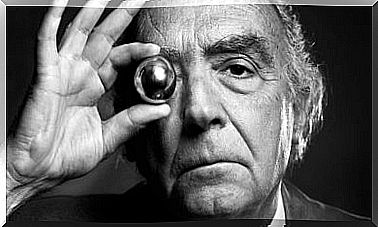Living With A Partner With BPD

There is some complexity in living with a partner with BPD. Not only because of the diagnosis itself, but because if we take into account that emotional management is still a pending task for most people, for those who have this personality disorder it is usually more complex, due to the intensity with the that emotions are experienced.
In this context, these types of relationships are often chaotic from the beginning. However, they can also be the cornerstones that help me identify dysfunctional behaviors and build more mindful relationships.
Let’s not forget that a couple can be a powerful mirror to grow, learn and mature both emotionally and psychologically.

The ambivalence of borderline personality disorder
The main characteristics of a person with borderline personality disorder are emotional instability, impulsivity, and problems relating to interpersonal relationships. To this must be added the feeling of emptiness, self-destructive behaviors and in many cases, the loss of one’s identity. An unflattering outlook for maintaining a reliable and healthy relationship as a couple.
However, once the disorder is taken into account and accepted, it is possible to put order to this chaotic life through the different existing therapies, such as iconic therapy or cognitive-behavioral therapy.
In addition, it is important for the partner without BPD to take into account several aspects about how to be with a person with BPD. They are as follows:
- Reflect on the reasons why you have fallen in love with a person with BPD and be responsible for your decision. Also, you should keep in mind that this disorder is something that your partner has, but does not define it.
- Bear in mind that the life of a person with BPD in non-remission phase is governed by an ambivalence between black-white and love-hate. However, do not lose hope, since the symptoms can be minimized until the remission phase as the person learns guidelines for it.
Balance in relationships with a person with BPD
People with BPD often live submerged in emotional tsunamis from which it is often difficult to escape if they do not acquire certain skills to maintain balance.
Thus, living in a compensated way with this diagnosis is possible, despite the fact that a lot of effort personal work is necessary to correct dysfunctional behaviors.
Every relationship is made up of a 50% commitment of both members. Therefore, both people affected by BPD and those unaffected must learn tools for the relationship to evolve.
Partner Guidelines for a BPD Couple
To live with a person with BPD you have to remain calm and serene, provide affection and be patient. In addition, it is very important not to react passively-aggressive, both verbally and non-verbally, as this avoids the defensive reaction of BPD.
Other things to keep in mind are the 3C rules : guilt, change, and communication. They are as follows:
- Don’t feel guilty about your partner’s behaviors with the diagnosis. Each of you must learn to take responsibility for your actions and ask a professional for help to make the relationship work.
- You cannot change your partner with BPD. It is difficult to help a person with BPD, as only those affected by the diagnosis should want to get out of their constant fluctuation. Do not force yourself to want to change your partner, nor do you want to always protect her from her suffering, as this will make her situation worse. Instead of demanding, it can be suggested.
- Don’t be afraid of communicating wrong behavior to your partner with BPD. You must learn to set limits so that she is aware of what she must change.
An important aspect of living with a partner with BPD is being objective and consistent. People with this personality disorder have irrational thoughts and behaviors that they can correct over time.
However, it is essential that the person who does not have BPD takes into account that all problems in the relationship should NOT be justified by the fact that their partner has this diagnosis.

Can a person with BPD have a successful relationship after therapy?
Yes. In fact, some BPDs by acquiring emotional management skills and impulsivity can be good partners, since they have learned fundamental requirements to relate in a stable way, both with themselves and with other people.
A couple is just two different people looking in the same direction. That said, it takes a lot of effort, understanding, and awareness from both the person with BPD and their partner.
Therefore, if both are committed, they can lead a healthy and coherent relationship, in which the extremes have ceased to exist to keep the relationship in between.









